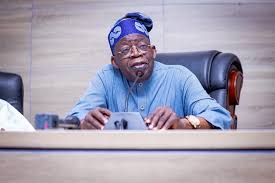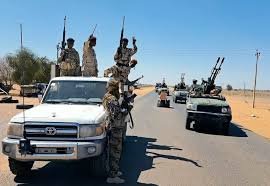A wave of outrage has erupted among clerics, rights activists, and civil society organizations (CSOs) in Nigeria over the federal government’s decision, led by President Bola Tinubu, to join the contentious Samoa Agreement.
The deal, signed on November 15, 2023, in the Pacific Island nation of Samoa, reportedly includes conditions requiring impoverished and developing countries to support the recognition of Lesbian, Gay, Bisexual, and Transgender (LGBT) rights in exchange for financial and other benefits from advanced societies.
Despite gaining traction, the agreement faces significant opposition from several countries that adhere to Islamic and Christian principles and maintain strong cultural values.
News of Nigeria’s involvement in the deal became public on Monday, July 1, when the Minister of Budget and Economic Planning, Alhaji Abubakar Atiku Bagudu, disclosed the information during a European Union (EU) reception in Abuja.
However, Bagudu’s media assistant, Bolaji Adebiyi, clarified on Wednesday that the agreements referenced by the Minister during the EU reception were strictly focused on Nigerian economic development.
Adebiyi emphasized that there was no mention of LGBT or same-sex marriage in the agreements and that any implication that Nigeria had endorsed such inclinations was incorrect.
He explained that Bagudu’s signature pertained to a $150 billion trade component.
When contacted about the current concerns surrounding the Samoa Agreement, Kamarudeen Ogundele, the spokesman for the Attorney General of the Federation and Minister of Justice, Lateef Olasunkanmi Fagbemi SAN, stated that he needed to conduct further investigations.
In response to recent developments, former Senator representing Kaduna Central at the National Assembly, Shehu Sani, has issued a warning to African countries against accepting loans or grants that come with conditions detrimental to cultural, religious, and societal values.
Sani emphasized the need for vigilance, urging African leaders to reject financial assistance from any country, group of countries, or international institutions that impose “demonic conditions” that conflict with African culture, religious beliefs, and values.
He called for a united front among African nations to preserve their heritage and principles in the face of such external pressures.
He also urged every African country that appended their signature to the Samoa agreement to ‘unsign’ and renege on the agreement.
“All African countries, including Nigeria, that appended their signatures should go back and ‘unsign’ the Samoa agreement.”
In his reaction, Ebuka Nwafor berated the Tinubu-led administration for allegedly institutionalising same-sex laws in Nigeria.
“The Samoa Agreement is gallantly laughing at anti-LGBT law right now. Bambiyala (begging) mentality and corruption are BAT combinations,” he said.
“The fact that it happened under the able leadership of the ‘much-awaited Muslim-Muslim ticket’ leaves less to be desired. How did we get here as a country?” he added.
“Why do African countries not consider the needs of the people they rule? Now in Nigeria, eating three meals a day is beyond the power of the poor; going to school is beyond the power of the poor; what kind of leadership do you have in this country?” Nasir umar zugachi, queried in his reaction.
For Nnaji Asiegbu, he said, “A loan should be conditioned to suit the value of the life of the person being given it. Otherwise, it’s not worth the risk.”
Other reactions include Martin Ajaereh, “If they don’t collect the loans, they may not have enough to steal. Loans are not for development in Nigeria but for stealing and sharing, the purchase of armoured exotic cars, private jets, houses, etc., which is why there’s no infrastructural development.”
Gesture Emmanuel, “The deed has been done; there’s no undoing of such. It’s a lesson to some of your people that religion shouldn’t be the determining factor when electing people into any sort of office because to a typical Muslim man or woman religion takes centre stage instead of capacity and competency.”
Musa Rimaye, “The most worrisome part of the agreement is the fact that the purported economic benefits would end up in the piggy pockets of very few people while compromising our religious and cultural heritage as a people. Our leaders should be sincere with us.”
Kadibia, “African nations must prioritise their sovereignty and cultural identity. Loans and grants with conditionalities that undermine our values and autonomy are detrimental to our growth and development.”
Chika Agina “Isn’t it amazing that this is happening under the watch of the of the Muslim president and Muslim vice president? They thought Islam was to liberate them; alas, it’s to enslave and plunge them into deeper haram.”























